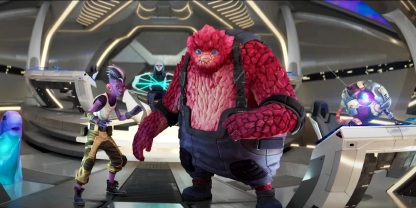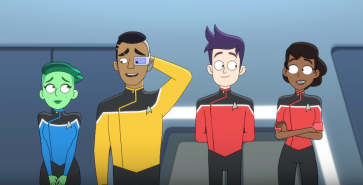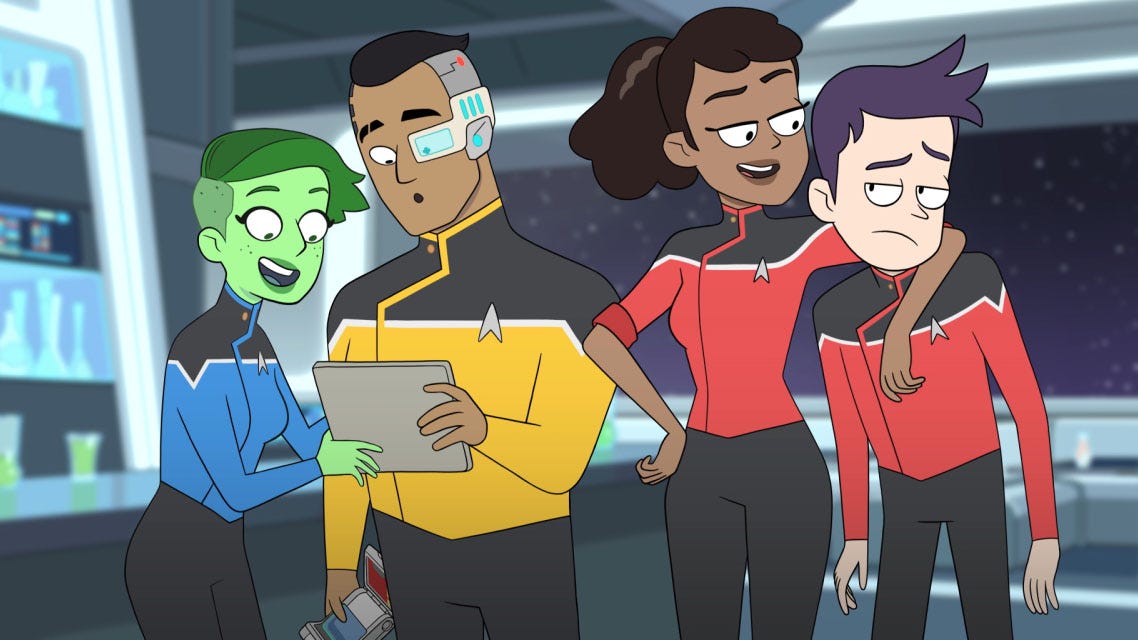In this semi-regular column looking at time travel in fiction, Causality Loop explores the interesting paradox of the Guinan character in the recent second season of Star Trek: Picard…
BEWARE SPOILERS for Picard Season 2.
A tried and tested Star Trek trope, time travel is the principal gambit behind the second season of sequel series Picard.
The mechanics of how it works are largely a magical combination of Star Trek mechanisms, from the slingshot effect around the Sun first seen in 1986’s fourth movie with The Original Series crew, The Voyage Home, with a liberal dose at the same time of the Borg Queen’s temporal vortex abilities we saw in the Next Generation’s second film First Contact. It’s all designed deliberately to evoke the nostalgia of those earlier means of time travel without needing to delve into any kind of logical temporal theory.

Where things get complicated is over the question of Guinan. One of TNG’s most beloved supporting characters, played with enduring mystery by Whoopi Goldberg since the late 1980s, we see her return in season premiere The Star Gazer in the early 25th century before, once the La Sirena crew go back to the year 2024, she gets a new bit of youthful casting in Ito Aghayere, portraying a Guinan who hasn’t yet met Jean-Luc Picard in the early 21st century.
Does this contradict Star Trek canon and the established timeline? Possibly. Possibly not. Let’s just call her, for now, Schrödinger’s Guinan.
Continue reading “Causality Loop: Schrödinger’s Guinan in STAR TREK: PICARD | TV Feature”
















